Text
circa 2020: nostalgia of not eating
I remember I was laying down in my dorm, sobbing.
There was no clear sign of what triggered it. In fact, I’m pretty sure the boy I liked, who was unfortunately in the room at the time, was very confused and concerned because we were both just quietly doing our homework a few minutes prior.
What he didn’t know, or at least he didn’t deem as important, was that on that specific day, I ate a huge serving of mac and cheese, a good portion of Ben and Jerry’s Mint Chocolate Chunk ice cream, and a whole bag of Hot Cheetos. In my mind, this was the most horrible thing ever. I felt disgusting, and I remember wishing inside that it was sophomore year of high school again, when it was so easy to not only control how much, or little, I ate, but to also make sure no one ever knew about it.
On my 16th birthday, I came to school to take a quick test, and then I went home and just wanted to be alone. I didn’t feel like celebrating because celebrating in a small town basically just meant eating. Despite my efforts, some of my friends surprised me with a small get together. My mom cooked some dishes, and there were ice cream and cake from my favorite bakery. They started singing Happy Birthday, and it felt like I was on a completely different planet. Everyone else was living while I was just existing. I ended up hiding in the bathroom, away from the food and love and sitting on the toilet until I dozed off from the stress and fatigue.
Most people I’ve talked to about this period of physical and emotional starvation automatically deem it devastating, but there were parts of the deprivation and manipulation that I loved. I loved watching the numbers on the scale start to trickle down, almost as if I wanted to become nothing. I loved how good I was at hiding it around my friends. I was addicted to not buying lunch, and I was addicted to some of my friends’ and family’s concerns that came with not buying lunch and rarely eating dinner. There was a certain sense of satisfaction I’d get knowing that I was losing weight, and people were concerned.
It became a game. I wanted the attention and concern, but I didn’t want it to become so overbearing that I would have to stop. At social outings, I’d eat, and sometimes I’d overeat as if I was proving a point. Looking back, it’s laughable that I was trying to prove a point to people who were not even fully aware there was something I had to prove to them. I’d make sure the bruises were because of how clumsy I was, and my cold body temperature was because I never layered right. This game was fun because I was getting what I thought I needed to finally become that happy version of myself. I was losing weight.
As I was sobbing in my dorm, the fairy lights hanging above me became increasingly blurry, and the concerned boy stroking my back asking me what’s wrong, I realized how much I missed those days when I thought I had complete control over my body and how other people saw me. The sobbing got even worse as I realized how I’m nostalgic over a version of me that was deeply unhappy and insecure.
Even though I was losing weight, I was also losing my connection with my family and friends. There was so much I couldn’t tell them because I knew that at the time, what I was most proud of, is actually something those who cared for me would be disappointed in. Though I had good friends to talk to and hang out with, there was a sense of alienation. There was this invisible wall, where my friends were on one side, and I was isolated and stuck in this cycle of control and desolation on the other.
It would probably take a long time, and probably with the guide of a therapist, to figure out exactly why a part of me wanted to be so small and insignificant in both my eyes and in the eyes of those around me. It would probably take me an even longer time to figure out why, even when I know how miserable I was during that time, I still feel the urge to go back.
Even now as I write this, there’s still nothing very concrete that I’ve learned. I can’t say I’m at this perfect point where I love my body and am happy with myself. But now I understand that I’m not the only one and that there’s no true invisible wall. From finally talking about it to some friends, I have reached this point where I accept the nostalgia I feel for my 16-year-old self, but I try not to dwell. Because I know that even though I felt like I had all the power, I was actually unhappy and losing. I lost so many precious moments like birthday parties and gatherings that I could never get back, and dwelling on the nostalgia would only lead me to lose more. I want to actually live through happy moments, where I’m blowing the candles and celebrating milestones with those around me, and missing my past self and body won’t get me there.

0 notes
Text
Cyberpunk Fashion.! PT 1
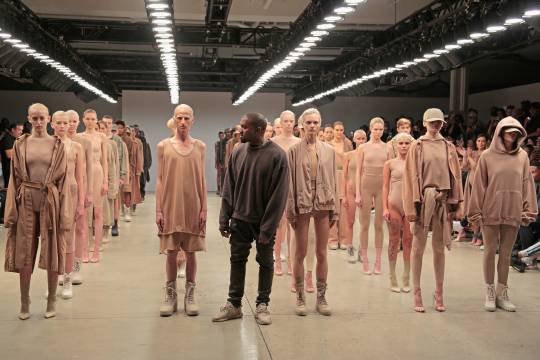


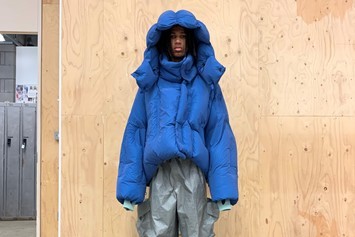
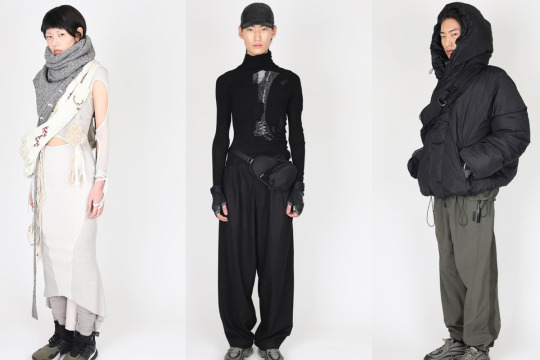
What is Cyberpunk Fashion?
Setting the Scene
A world overrun by technology and big corporations
People in the world are apathetic and feel there is basically nothing they can do
The environment is dying, therefore the people must dress a certain way to adapt to the environment
The Word Itself
Cyberpunk is a compound of cybernetics and punk
According to Google definitions…
Cybernetics: The science of communications and automatic control systems in both machines and living things
Punk: A loud, fast-moving, and aggressive form of rock music, popular in the late 1970s and early 1980s; a worthless person; anti-culture
Cyberpunk: Genre of science fiction set in a lawless subculture of an oppressive society dominated by computer technology
Above everything, cyberpunk is a lifestyle that blends a combination of “high tech, low life” with a deep understanding of social fabric backdoors.
Fashion and aesthetic depicts humans living in an urban dystopian future of highly advanced developments in science and technology
History // General Inspiration
The origin of the movement is rooted in scientific findings and scientific fiction that first developed in the 60s and 70s
Blade Runner (Film): 1982 film directed by Ridley Scott. It focuses on an ex-cop turned private detective in 2019 named Rick Deckard, who is called back into service to hunt down human-looking robots called “replicants”.
Movie inspired by Phillip K Dick’s novel “Do Androids Dream of Electric Sheep?”
The movie itself created the visual look, atmosphere and world of cyberpunk.
Created a world with the structure of a reality we are entangled with, but has blaring signs of an impending doom of artificial intelligence and technology.
Akira (Film): 1990 anime film about Tetsuo, a teenager who had gone through a difficult childhood and is the victim of experiments aimed at developing the psychic abilities that lie dormant in all of us. He is endowed with a power that he himself cannot imagine, and decides to go to war against the world that has oppressed him.
The new digital world with rapid urbanization causes these theories of a potential dystopian future
Cyberpunk fashion becomes both commentary and critique of these theories
The Clothes
Functionality, technology, and a theme of “dystopia” is key to understanding how to dress cyberpunk — “high tech, low life”
Colors Palette: neon colors entwined with dark, earth tones
Also known as techwear: urban apparel that uses high-quality fabrics and technical detailing to create a product that can stand up to the elements
The “Cyberpunk” aesthetic must be apparent and obvious. Especially since techwear is very popular and worn in a lot of different ways, a point must be made to differentiate those who are actively trying to dress cyberpunk versus those who are just buying into the techwear trends.
Some Examples
Rick Owens: Paris based designer known for a largely noir, gray and ice-hued collection with deployment of pentagram motifs. His aesthetic is also known for being “rapturously anti-establishment”. He is one of the leading designers in the aesthetic that is known as “avant apocalypse”: a revolution of subversion, neutral maximalism, deconstructed pieces, asymmetry, wearing clothes the wrong way. Very inaccessible.

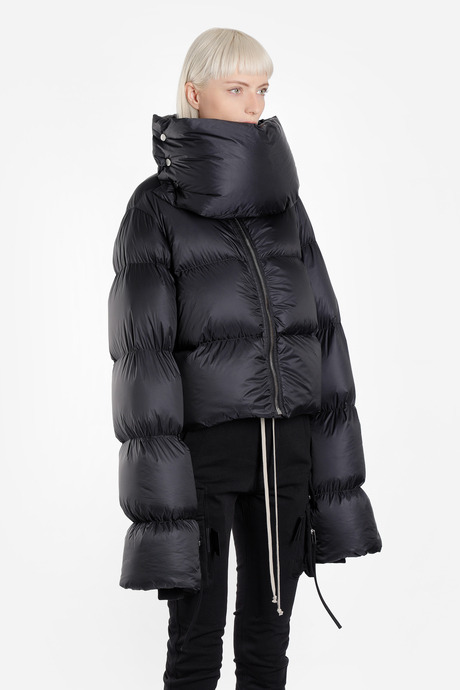

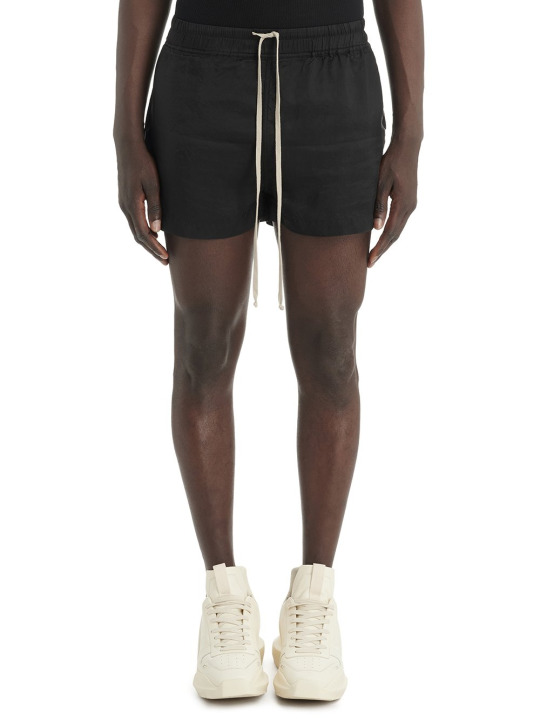
Arc’teryx: Canadian outdoor clothing and sporting goods company founded by Dave Lane and Jeremy Guard in 1989. Sells products related to climbing, skiing, snowboarding, backpacking, and hiking-related activities.
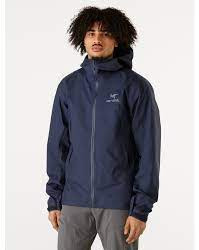

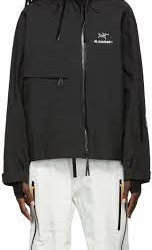
YEEZY: Created by Kanye West, who was heavily inspired by the film Akira. He relies heavily on earth tones and comes to the fashion industry with an idea of a uniformed code.

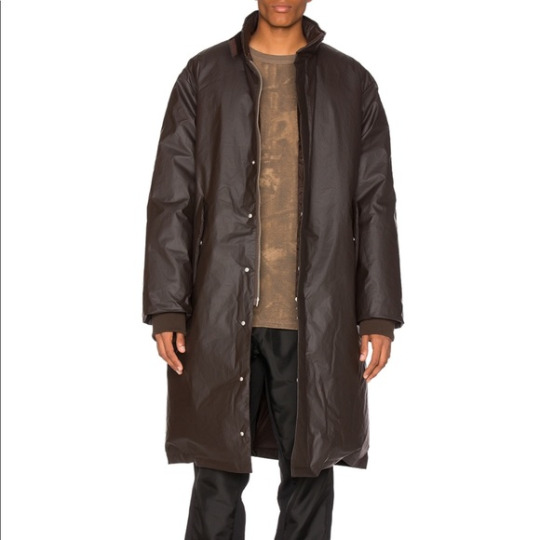

Dingyun Zhang: Born in Beijing. Rising designer out of Central Saint Martins. Worked for YEEZY. Known for his “otherworldly” winter wear. His newest collection of winter wear (collabed with Moncler Genius) has hyperbolic, cartoonish silhouettes and are inspired by the colors and contours of post-apocalyptic underwater life.
“Perhaps I’ll start releasing daily functional pieces through a digital space”
“For instance, utilizing my bonding techniques to make a drainage structure on the coat, helping the downward flow of water off the wearer’s body.”
Pieces from Spring 2022 shown below

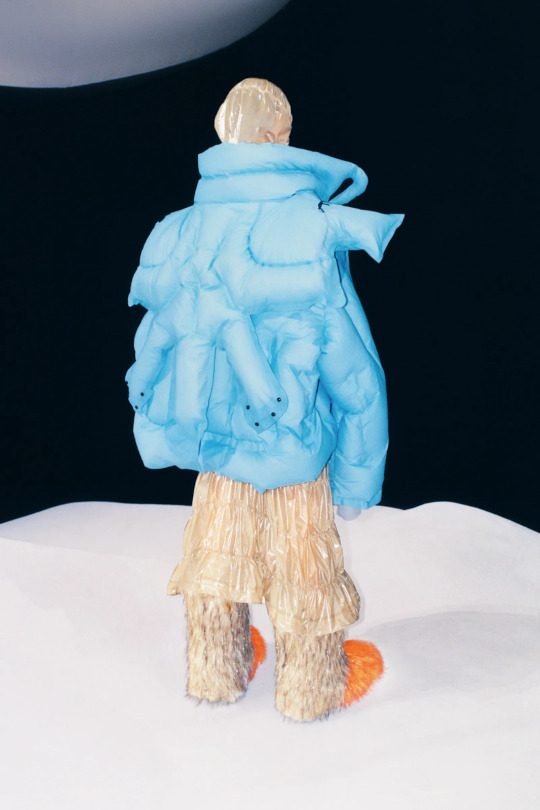

Hyein Seo: South Korean designer/label known for its influence on today’s streetwear. Released technical wares that defy convention and traditional codes of dress. Focused on a monochrome palette for the most part. Outerwear includes an array of complicated paneling, exaggerated shapes, obscuring hoods and engineered textiles to combat the elements.

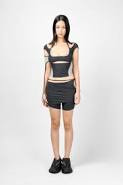
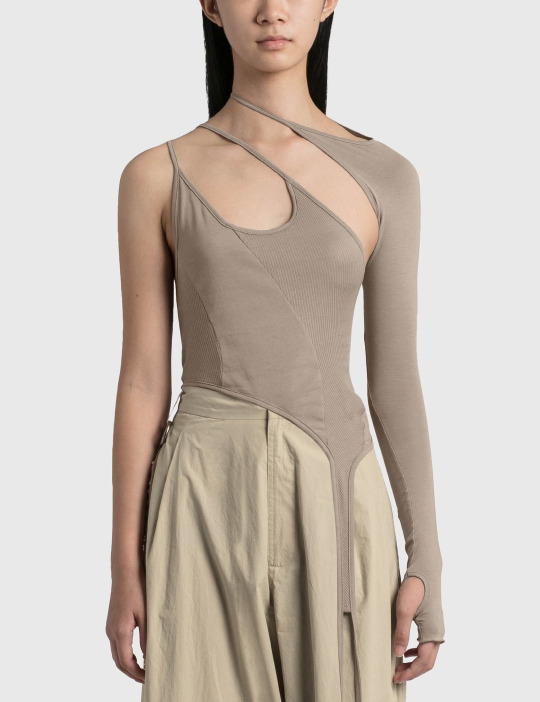
Y-3 by Adidas: collaborative brand between Adidas and designer Yojhi Yamamoto. Known for their high end reinterpretations of adidas silhouettes. A pioneer of breaking down the boundaries between fashion and sport. Have had collaborations with Virgin galactic to produce a full range of space apparel.
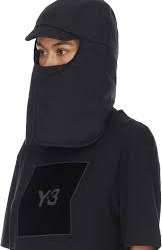
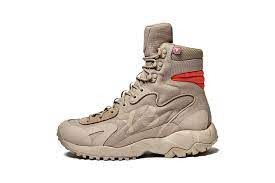
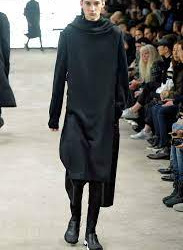
Rei Kawakubo: Known for going against the system and being “anti-fashion”, she founded Commes des Garcons as well as Dover Street Market. She was at first known for her dark, oversized, and asymmetrical garments.

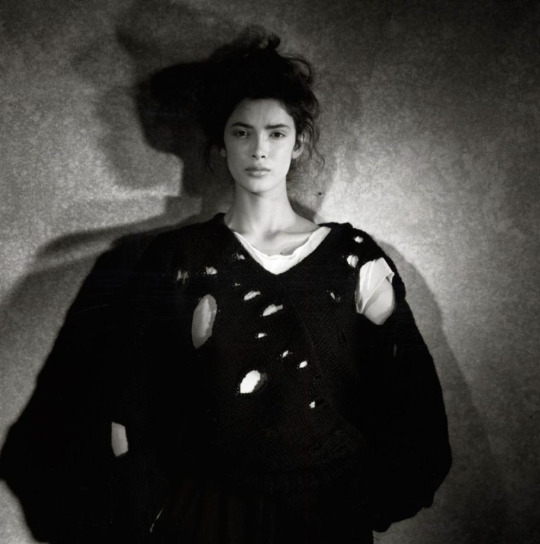

Further Questions
What does cyberpunk clothing say about today’s society in terms of class?
Does cyberpunk better society in terms of gender or class or does it entrap us further?
What is cyberpunk clothing trying to warn us of?
Does the cross between high fashion brands and cyberpunk clothing make sense?
Does hypocrisy lie in this?
What is the wider influence of this subculture?
5 notes
·
View notes







